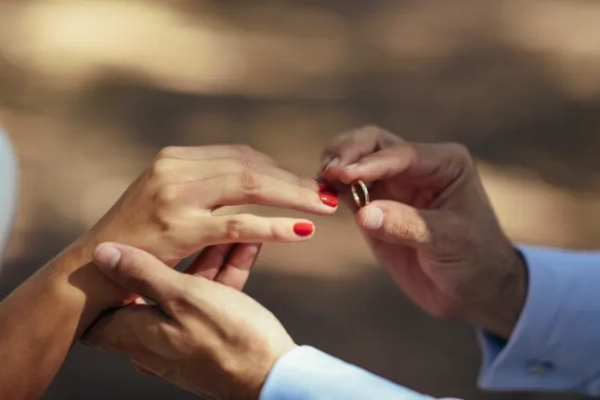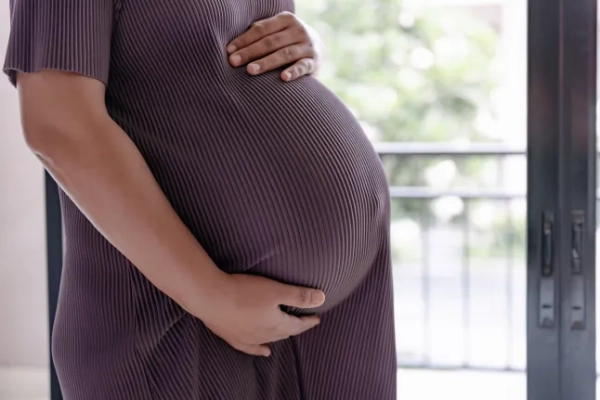
Depending on your culture, marriages between cousins may be either common or extremely taboo.
The difference of opinion on the issue became particularly clear this week after the NHS England Genomic Education Programme published a blog discussing the “various potential benefits” of first-cousin relationships.
The article claimed that these benefits included “stronger extended family support systems and economic advantages,” but was later removed from the website due to widespread backlash.
Following the news, Conservative MP Richard Holden told the Daily Mail that the Conservatives were planning to tighten the ban on first-cousin marriage, while Health Minister Wes Streeting told LBC radio: “Cousin marriage is high-risk and unsafe, we see the genetic defects it causes, the harm it causes… This advice should never have been published.”
However, an NHS spokesman said that while the organisation acknowledged the scientific evidence supporting the increased risk of birth defects in children born to consanguineous relatives, it was committed to informing parents in a “respectful way”.
However, in reality, around 10% of all marriages worldwide are between first or second cousins, and the legal framework, history and research on the practice – both in the UK and abroad – are not as strict as the current debate might suggest.
Is marriage between cousins legal in the UK?
In Britain, marriage between first cousins is legal.
Prince Philip and Queen Elizabeth II were second cousins, but famous figures such as Charles Darwin and H.G. Wells were among those who married their first cousins.

However, this does not mean that cousin marriages are not subject to criticism, and in recent years there have been increasing calls to ban the practice.
It is banned in other countries, such as China, South Korea, the Philippines, Belgium, Lithuania and several US states, while Norway and Sweden have become the latest countries to pass laws banning first-cousin marriage.
Family members entering into marriage under the law
In the UK, although marriage between first cousins is legal, you are not allowed to marry the following people:
- Mother
- Father
- Son
- Brother
- Sister
- Grandparents
- Grandchildren
- Uncles or aunts
- Nieces or nephews
In most cases, this also includes half-siblings, although the rules are less clear for step-siblings and step-siblings. In such cases, both spouses must be over 21 years of age, and the younger spouse must not be considered a child of the older spouse.
Why are cousin marriages so controversial?
Prejudices surrounding this practice are partly culturally based, but concerns generally stem from research suggesting that children may suffer higher rates of illness or infant mortality. However, the evidence is far from conclusive.
A long-term BBC study of first-cousin marriages in Bradford's Pakistani community has found a higher incidence of genetic diseases and health problems in children born to first cousins, and found that a child born to first cousins is 10% less likely to reach a “good developmental stage” than a child born to unrelated parents.

However, Professor Sam Oddie, a consultant neonatologist and researcher at Bradford Teaching Hospitals, points out that this may be less due to the parents being first cousins than to endogamy, where people from the same ethnic community share genes.
More trends

'He's my boy': Man who rescued injured squirrel says they're now inseparable
Strange 3 days ago
- “Dystopian” toilets won't give you toilet paper unless you watch the ad first.
- The mysterious smell that haunted the school for weeks was 'teacher using fart spray'.
- An enraged squirrel has appeared in California, sending two people to the hospital.
Other factors that may influence health include parental age, smoking, alcohol consumption, and assisted reproductive technology.
According to Alan Bittles of the Centre for Comparative Genomics in Australia, the risk of birth defects rises from about 2% in the general population to 4% in first cousins, but the visiting professor and study leader said “it would be a mistake to ban it” and potential problems should be “put in perspective.”
Similarly, Professors Diane Paul of the University of Massachusetts Boston and Hamish Spencer of the University of Otago in Dunedin, New Zealand, compared the risk of birth defects in children of first cousins and mothers over 40.
Regarding countries that have banned first-cousin marriage, Spencer stated, “Neither the scientific nor the social assumptions underlying such legislation stand up to scrutiny. Such legislation reflects outdated prejudices against immigrants and the rural poor and is based on simplistic notions of heredity. There is no scientific basis for it.”
READ MORE: Martin Lewis's MSE warns 200,000 families will suffer losses due to simple error in child benefit payments
MORE: My sister thought her asthma was cured and left her inhaler at home.
MORE: Married, have a house, and a decent job? That's great, but stop “provoke” your friends.
News updates
Stay up to date with the latest news with daily email updates.
Email I agree to receive newsletters from Metro Subscribe
This site is protected by reCAPTCHA and the Google Privacy Policy and Terms of Service apply. Your information will be used in accordance with our Privacy Policy.
Sourse: metro.co.uk





